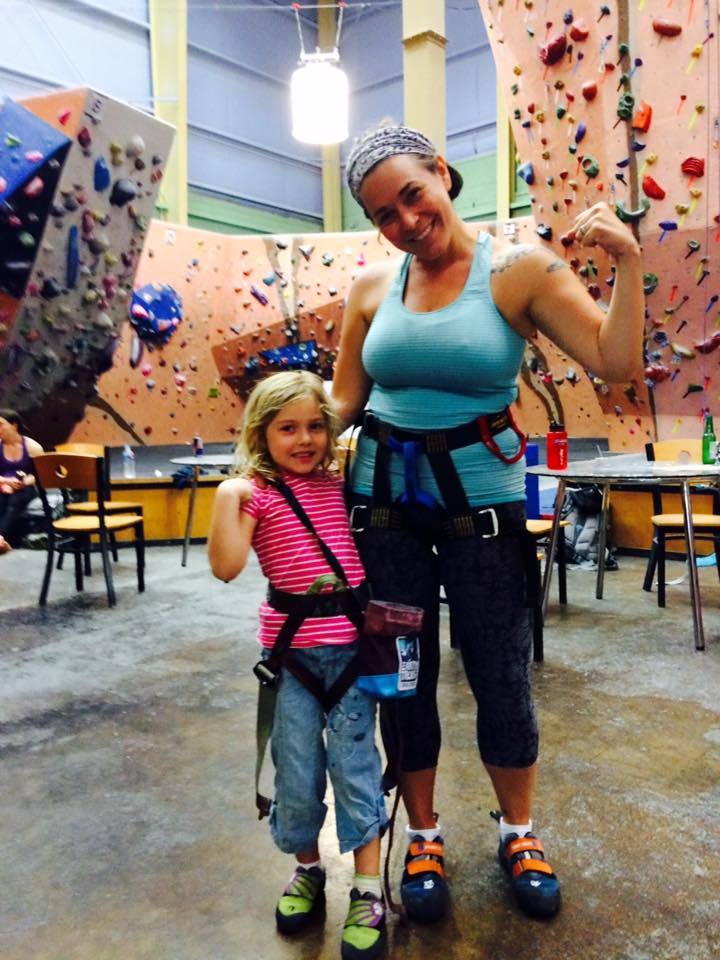
I'm not a germophobe by any means. I've always held the belief that "a little dirt won't hurt" and after being a mother for nearly seven years, mostly, I find it to be true. That's why I don't worry too much about elementary school germs or my toddler son kissing the dog. But when my first baby was an infant, our family was the one-in-a-million, the rare case of what happens when a little dirt does, in fact, hurt.
At eight weeks old my daughter developed an extraordinarily rare, yet curable condition called infant botulism. It came from a microscopic spore in the soil and shut down her whole body from the inside-out. Older kids and adults can move the spores out of their bodies before they germinate and multiply, producing a toxin that interferes with the normal interaction between her muscles and nerves, but an infant's digestive system isn't mature enough.
It was the dead of winter when my husband and I brought our tiny, 5-pound, 11-ounce baby home from the hospital for the very first time. We were living on a farm in an older, run-down house in the Maryland countryside. We were a far cry from farmers, though, and for her first few weeks of her life there were piles of snow on the ground so high we barely left the house. The most outdoor time we got that winter was when I bundled my baby up, layer after layer, strapped her in the stroller, and pushed her up and down the long driveway.
One day, I took my daughter to the doctor's office to have her two-month vaccinations. She was perky and squirmy on the table—"a happy baby," the pediatrician told me. I remember feeling proud of myself in that moment. I'd struggled to feel confident as a new mother, but she was "happy." The doctor had said it himself. Little by little, I was stepping into my new role and my daughter was thriving.
She slept in the car, which wasn't suprising. But then she slept through our whole grocery shopping trip. She slept as I unpacked bags in the kitchen, and all afternoon. At first, I attributed her grogginess to the shots, and honestly, the long nap felt like a welcome relief to me as an exhausted new mother. But soon it became clear that something was very wrong.
That night my daughter woke to nurse every couple of hours. But when I put her to my breast, she fell off, sobbing. I couldn't get her to nurse. When we called the pediatrician, they simply said to keep an eye on her. By the next day, she still couldn't seem to stay latched. And by that evening, her cry had turned into a low groan. Her limbs were noticeably floppy. She wasn't having wet diapers. All she did was sleep.
Panic set in as we drove to the emergency room. Upon our arrival, she was hooked up to IV fluids, given every test in the book. My husband and I laid on either side of her while she slept in the hospital bed. Sometimes we drifted in and out of sleep, or awoke to a doctor standing over the bed with a clipboard, telling us, with a smile, that yet another test had come back negative.
The next day, our baby lay in a crib with metal bars that had been brought into the room. She was pale and unable to move. Her back was bruised from top to bottom from a spinal tap that had been performed that morning. A nurse came in and asked me to try feeding her. I stared at her in disbelief. Could she not see that my baby was far too weak to nurse? Were the doctors simply looking at test results instead of our child, as my husband and I sat in the hospital room watching her grow sicker and sicker?
I picked my baby up. Her arms hung limp. Her head flopped backwards. "I can't feed this baby. Look at this baby!" I cried, beginning to sob for what felt like the 100th time. I had been trying to hold it together, just waiting for a shot or a pill or something that would turn my baby back into her old self. But now, I started to worry that it never would.
A while later, the doctor came back in. Someone, an older nurse, had had an idea. She thought my daughter's condition might be infant botulism, a rare illness that wouldn't show up on the dozens of tests that had been performed. An ambulance arrived to take us to a neighboring hospital that had a pediatric intensive care unit and would be able to better care for her.
That afternoon, doctors, nurses, and medical students in the P.I.C.U. hovered around her bed to take notes and marvel at "the botulism baby." And I cowered over a breast pump, barely able to breathe. Though it would be about a week before they could confirm the diagnosis (done by testing my daughter's stool once she wasn't constipated anymore), the doctors were confident it was, in fact, infant botulism. An antitoxin, botulism immune globulin intravenous (BIGIV), was ordered from California to aid in her recovery, but it would be hours before it could be flown in.
The hours crept by as my husband and I lingered by her bed, stroking her now thin and motionless body. We had little to do but do our own research. We read everything we could about the condition. We found out that there were two main ways it could be contracted: through ingesting honey and inhaling soil particles. (Eating home-canned food contaminated with the spores is another possible source.) She hadn't had any honey so we chalked it up to our farm-living, even though we'd hadn't even been out playing in the dirt. We also learned that my daughter's constipation, something that had come about over the past few days, hadn't been a variation of normal like I'd been told, but actually the first sign that her body was shutting down.
All of her symptoms were "classic botulism" according to the one nurse who had actually seen it a couple of times. And somehow, that was music to my ears. My biggest fear during our hospital stay was that something had been missed. What if it was something worse, something that couldn't be cured? I thought of all the mothers who'd been in this same room before me. Mothers who hadn't gone home with their children. I clung to the belief that I wouldn't be one of them. Soon, as my daughter got better, I knew I wouldn't be. And then I knew what it was like to feel selfish and grateful at the same time.
While it's a rare condition, knowing the symptoms of infant botulism—the inability to suck, the constipation, the floppiness—can be lifesaving. I shudder to think of what might've happened if we'd stayed home one more night, hoping the grogginess would wear off. But if I'd known more, perhaps I would've been better able to advocate for my child, to get a diagnosis sooner, and to dispel my fears that she'd never recover.
After two weeks in the P.I.C.U. my daughter regained full mobility. I was never able to get her back to nursing, though I know some mothers who were successful. About 100 babies a year in the United States will develop infant botulism. It can affect babies up to age 1, but is most common between three weeks and six months. It's so rare most doctors will go their whole careers without ever seeing it. But undeniably, to the parents who have watched their child suffer through it, it is heartbreaking. Still, infant botulism is highly treatable and babies diagnosed with the condition are expected to have a full recovery.

Since my daughter's hospital stay over six years ago, I've had to do my own healing. After returning home, I stayed up night after night, unable to let myself fall asleep. A psychiatrist later told me I had developed post-traumatic stress disorder from the experience. Luckily, my daughter has long been healed and she'll never remember being so sick and so helpless. The biggest scars, by far, were the ones left on my heart. But if there's any silver lining at all, it's that I found a deeper kind of gratitude, the kind you only learn when you come close to losing someone.
